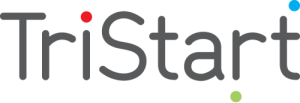Winterwell Newletter #1 December 2008
The Winterwell Newletter: The First Issue
 Earlier this year Joe Halliwell and Daniel Winterstein
founded Winterwell. Working with clients of all shapes and sizes, we use maths and
artificial intelligence to solve problems and make businesses more efficient.
Earlier this year Joe Halliwell and Daniel Winterstein
founded Winterwell. Working with clients of all shapes and sizes, we use maths and
artificial intelligence to solve problems and make businesses more efficient.
Our work is varied, taking in IT, new media, emerging technologies, robotics, risk management and data mining. The best way to find out about what we do (and how we could help you) is to see some of our work. Hence this, our first newsletter. In this issue:
- Want someone to answer your email?
Businesses spend a phenomenal amount of time reading and answering emails. So, what if someone found a way of taking the bulk of the effort away from people, letting machines do most of the work? Well, we're working on it. more
- The next big thing in gaming
Audi used the Alternative Reality Gaming format as an advertising medium a couple of years ago - and managed to persuade 200,000 people to participate in just one day. The commercial potential is vast, and we're developing tools to make the creation of ARGs quicker and less expensive. more
- Can a computer learn?
As artificial intelligence consultants, we're keen to show that this is possible because the applications for business are endless. So, we programmed a computer to teach itself how to compose music. And we're not talking mobile phone ringtones here - we wanted our computer to sound like J. S. Bach. more
- Risky business
Starting a business - especially in the current environment - always involves a certain degree of risk. The question is, how much? We're helping our latest client, TriStart, to answer that question. more
- Elsewhere in AI
This issue - a big robot dog that can bound through snow and keep its balance on ice. Strange, amusing and very impressive. more
Smart email
Some companies receive dozens of emails a day. Others receive hundreds, and many companies receive thousands. And someone has to deal with these emails as promptly, politely and efficiently as possible. But there's only so much a person can do in one day. The problem is time versus resource. That was enough challenge for us, so with support from the Technology Strategy Board, we set about finding an answer - and we're well on our way.
 We're developing a piece of software that will be able to
automatically answer emails for you. We don't mean those
automatic responses saying 'I'll be back on Monday' you can set up
in your email software. We're talking about software that will learn
from examples, and carefully choose the correct response based
on its understanding of the message content. Obviously there will
always be some messages you'll want to reply to personally, but an
application like this could really save businesses a lot of time and
effort - in call centres, for example.
We're developing a piece of software that will be able to
automatically answer emails for you. We don't mean those
automatic responses saying 'I'll be back on Monday' you can set up
in your email software. We're talking about software that will learn
from examples, and carefully choose the correct response based
on its understanding of the message content. Obviously there will
always be some messages you'll want to reply to personally, but an
application like this could really save businesses a lot of time and
effort - in call centres, for example.
It's still early days, and there's obviously a lot of testing and polishing to be done before this software can be let loose on valuable customers or suppliers. But the prototype is due early in 2009, so if you'd like to learn more before then, email or call us. Back to top
The world is your playground

With an increasing emphasis on realism and interactivity, game players are constantly seeking new and more involving game experiences. And the next phase of gaming is emerging with Alterative Reality Games (ARGs - also known as interactive drama or transmedia fiction). These games get players more involved by using a combination of media - anything from newspapers to TV, phones and of course the Internet with Twitter, Facebook and also custom-built sites. In short, the player's world becomes the gaming platform - the ultimate in realistic graphics.
But there's one big problem with ARGs, perhaps best summed up by ARG creator Sean Stewart:
"It just, you know, costs you unbearably in blood, sweat and tears over an extended period of time."
Yes, while potentially lucrative, ARGs are very labour intensive. That's why we're looking to develop a new system called Puppet Strings to provide the tools for making ARG development quicker and more cost-effective.
We're also involved with a certain media company on an exciting project based around ARGs... but we're not allowed to talk about it yet. Watch this space!
A limited-functionality version of Puppet Strings should be available in 2009. But if you want to hear more about the possibilities of ARGs and Puppet Strings before then, you can email us at or call us. Back to top
I'll be Bach.
The idea of machines being able to complete human tasks is nothing new - just look at washing machines, spell checkers or the films of Arnold Schwarzenegger.
 However, the notion of a computer actually being creative is something
different. A washing machine just follows a given set of instructions every
time you use it, but to be creative a computer would actually need to learn.
So, working with the Institute for Adaptive and Neural Computation (ANC) at
Edinburgh University, we set out to test whether this was possible by creating
a computer program that could learn how to play music.
However, the notion of a computer actually being creative is something
different. A washing machine just follows a given set of instructions every
time you use it, but to be creative a computer would actually need to learn.
So, working with the Institute for Adaptive and Neural Computation (ANC) at
Edinburgh University, we set out to test whether this was possible by creating
a computer program that could learn how to play music.
Specifically, we wanted our program to harmonise in the style of classical composer J. S. Bach. In the 1500s the Lutheran church began to use hymns called 'chorales'. At first these hymns were simple melodies for people to sing, but then composers started to elaborate them with complex harmonies. Possibly the greatest of these composers was J. S. Bach, so we gave our program about a hundred of his pieces to see if it could teach itself how to harmonise.
The program successfully identified patterns in Bach's music. In other words, it made up the rules of how to compose like Bach on its own, purely by analysing his music. The result is pretty impressive - although Bach needn't worry about the competition, the program can produce a plausible harmony based on any melody it's given.
Aside from making music, machine learning like this can be used to solve problems in a wide range of fields; from computer gaming to medicine. As artificial intelligence and statistical consultants, we put this technology to work for our clients in all areas of business. So if there are parts of your business you'd like to improve, we can help. Just email us at or if you'd like a chat, call us. Back to top
Do you know what the future holds?
Might. Possibly. Potentially. Pick up any startup report on financial projections or predicted costs and you'll find words like these. Such reports are based on guesswork, because none of us can predict the future. They're a 'best guess'.
 Out latest client is a company called TriStart. Their online risk
assessment tool gives startups and very young companies a more
accurate idea of how a business will perform, taking into account
detailed factors such as market, technology, the entrepreneurial
qualities of individuals and teams, training and skills. An assessment
can be easily completed online, with a report generated instantly.
The success of this approach means TriStart have public and
private sector clients all over the world. And now they've signed a
partnership deal with Winterwell, so we'll be developing the next
generation of their system. Again, this will be a convenient, online
application, and as the system learns more about you and your
company, statistical learning software will deliver continuous
improvements to the service.
Out latest client is a company called TriStart. Their online risk
assessment tool gives startups and very young companies a more
accurate idea of how a business will perform, taking into account
detailed factors such as market, technology, the entrepreneurial
qualities of individuals and teams, training and skills. An assessment
can be easily completed online, with a report generated instantly.
The success of this approach means TriStart have public and
private sector clients all over the world. And now they've signed a
partnership deal with Winterwell, so we'll be developing the next
generation of their system. Again, this will be a convenient, online
application, and as the system learns more about you and your
company, statistical learning software will deliver continuous
improvements to the service.
If you're considering setting up in business, or you have a young business and you want a more accurate idea of your future, TriStart can help. Their new service will launch in January 2009.
And if you'd like to speak to us on the subject, feel free to email or call us. Back to top
How artificial intelligence is creating petrol-powered dogs
Anyone with an interest in robotics (one of our own fields of interest), will tell you that enabling a robot to walk is hair-tearingly difficult. So we're in awe of Boston Robotics and their creation 'Big Dog', which not only walks, but can also correct itself when it slips. The breakthroughs that made this feat possible are all down to the maths behind the robot's brain. In fact you'd be surprised at the amount of maths involved in walking, (the more curious amongst you can read more about this in an old Scotsman article written by Daniel).
Of course, you may just be amused at the bizarre, four-legged creature slipping on the ice. But that works too. Enjoy. Back to top
Bye!
That's all for this issue, we hope you found it useful, (or at the very least, interesting). We're always here to discuss any problems in your business, or ways of making it more efficient - you'd be surprised at the things we can help you with. Feel free to email us at or phone us. Thank you for reading!
